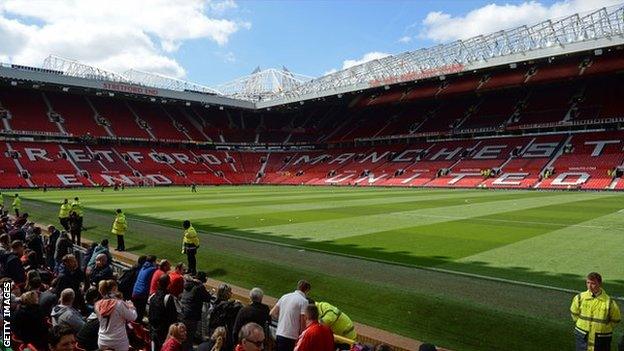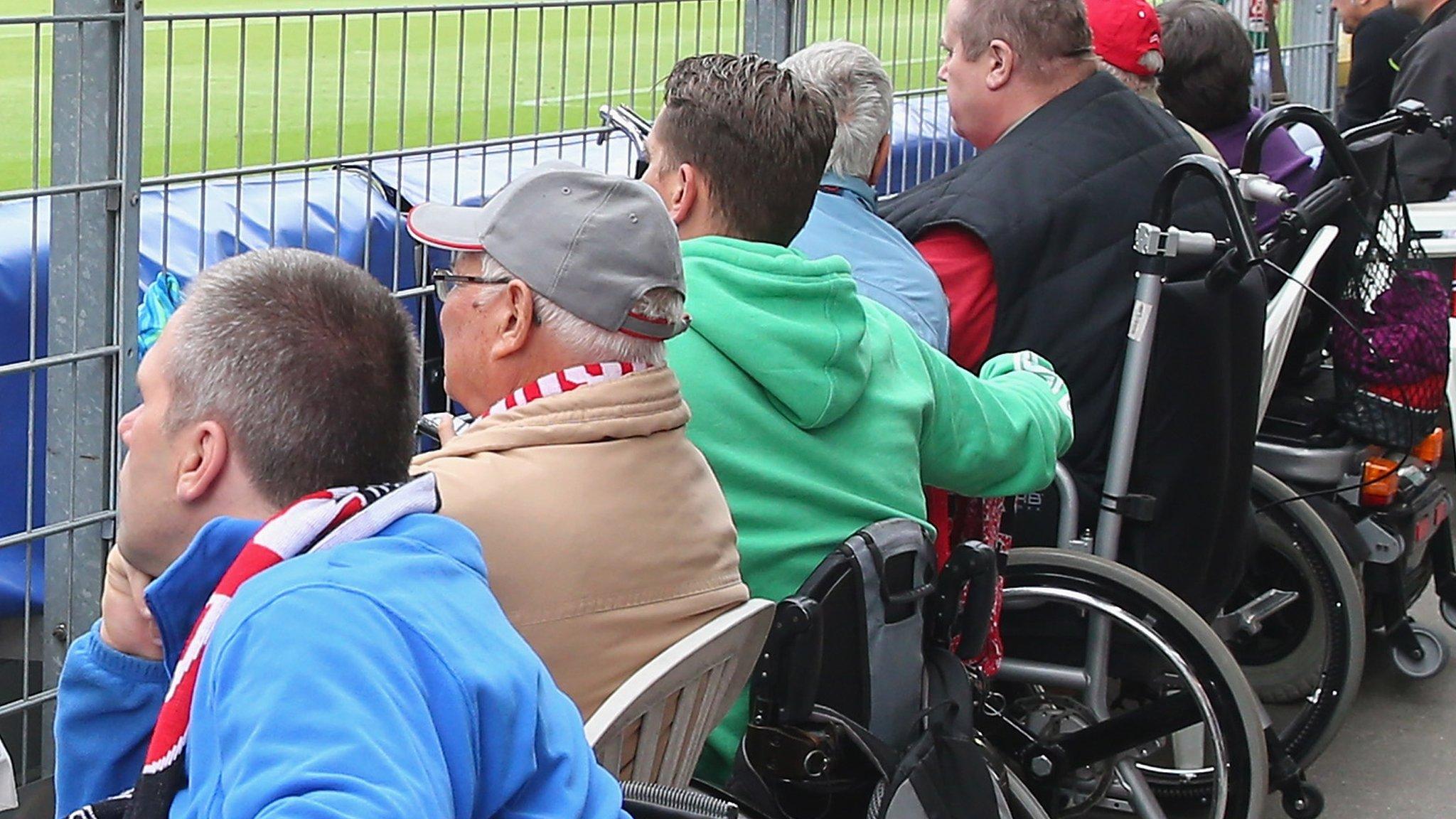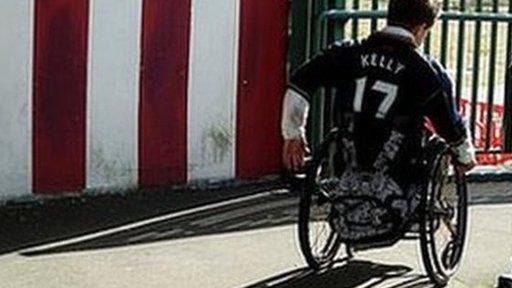Old Trafford: Man Utd announce plans for more spaces for disabled fans
- Published

The plans will mean a reduction in Old Trafford's capacity to about 73,300
Manchester United are to carry out "significant structural work" at Old Trafford to accommodate more than 300 new positions for disabled supporters.
The work, to be completed by August, will involve moving 2,600 season-ticket holders over the next three years.
Old Trafford's capacity will be reduced from just over 75,000 to about 73,300 because of the changes.
A 2014 BBC investigation found United offered 43% of the recommended number of wheelchair spaces.
The new positions for disabled supporters will see the East Stand accessible platform extended across and into the Sir Alex Ferguson and Sir Bobby Charlton Stands.
Though structural work will be complete by August 2017, the use of the spaces will be phased in while existing season-ticket holders are moved.
As part of the changes at Old Trafford: , external
United will sell season tickets in accessible sections.
Some disabled fans must pay for tickets from next season (phased in from 25% of the full price, to 100% by 2020-21).
Existing season-ticket holders who need to be relocated will be given a 'goodwill package', potentially including free cup tickets for a season.
Archive: Disabled fans 'discriminated against'
What have the club said?
United's group managing director Richard Arnold said: "Old Trafford is a home for all United fans.
"These changes will help many more of our loyal disabled supporters to attend games to watch their heroes."
What has been the reaction?
Disability charity Level Playing Field said it was disappointed, external United would not meet the Premier League's pledge but congratulated the club on the improvements being made.
Manchester United Supporters' Trust welcomed the expansion of disabled facilities but said it "noted with concern" the impact it would have on existing season-ticket holders.
It added: "We will also be making a strenuous argument for general expansion of stadium capacity."
Analysis
Katie Gornall, sports news correspondent
For years, top clubs have offered numerous reasons for failing to meet accessibility guidelines, but Manchester United's announcement means those explanations will no longer cut it.
They have managed to adapt a century-old stadium, move season-ticket holders, and accept that capacity will have to decrease in order to cater properly for their disabled fans.
Many will rightly say "about time too" for a club of United's resources, but this type and scale of structural work is unprecedented in the Premier League and marks an attitudinal change. As MP Damian Collins said recently " this isn't really about money, it's about the will to do it".
- Published18 October 2016

- Published14 September 2015
